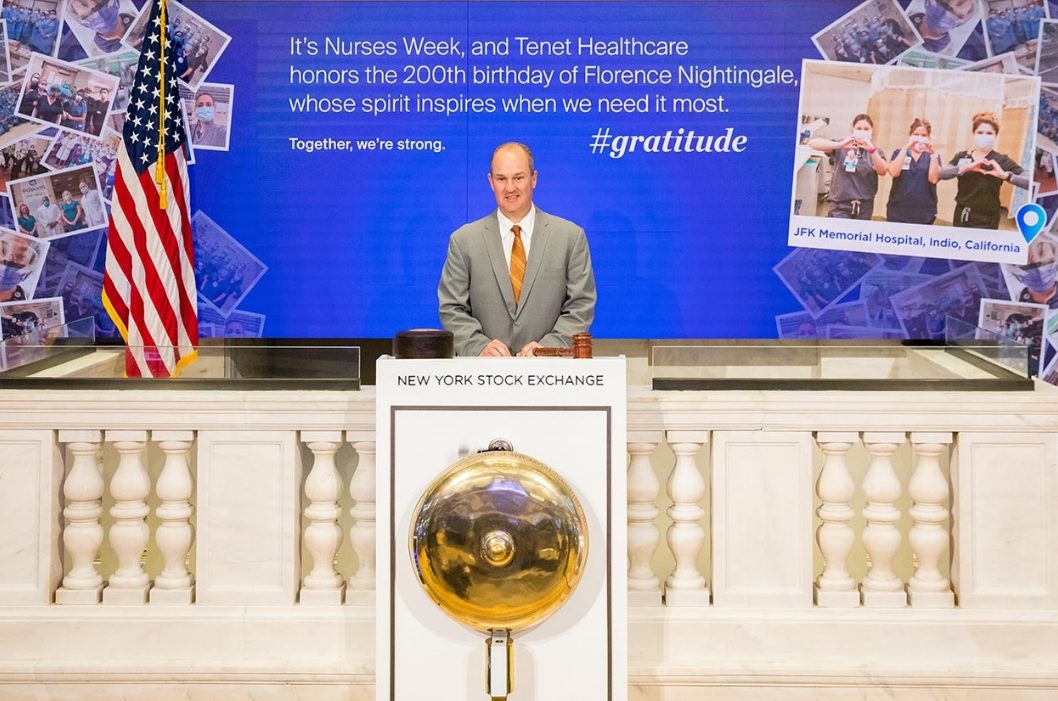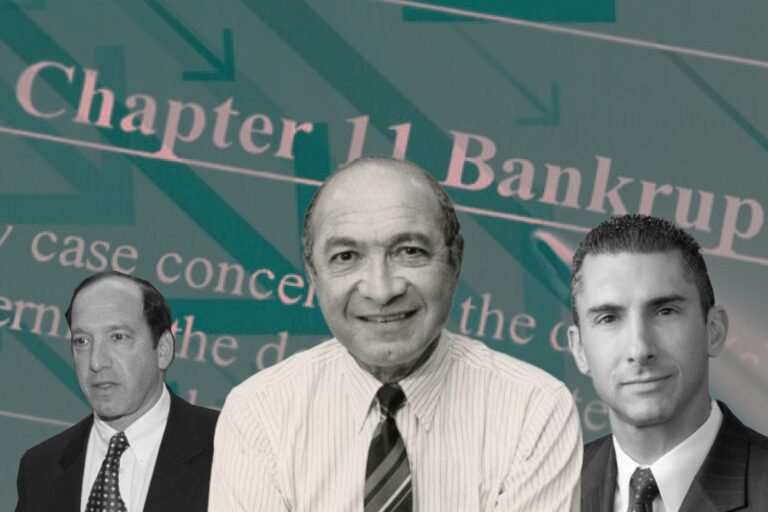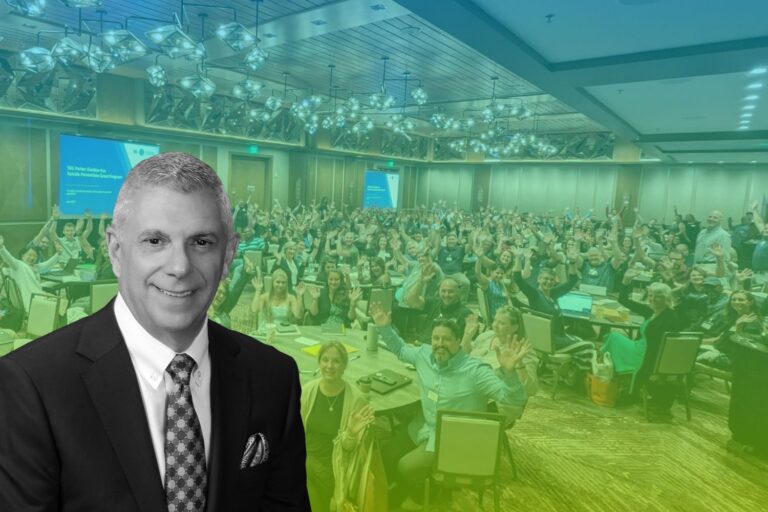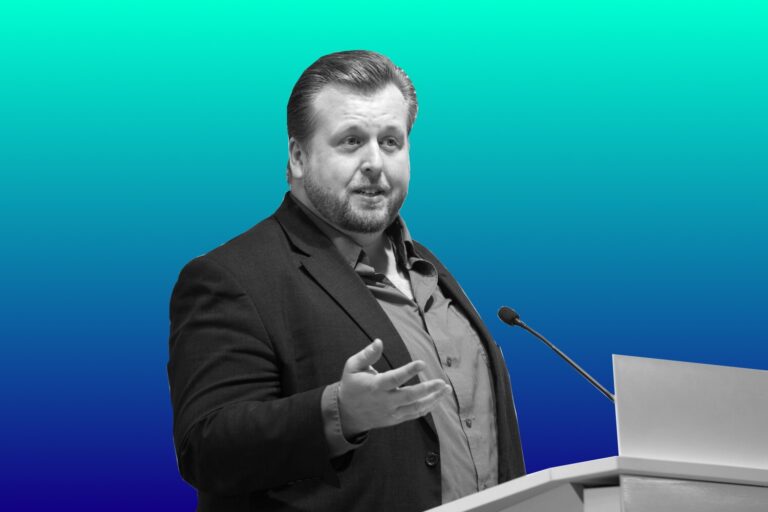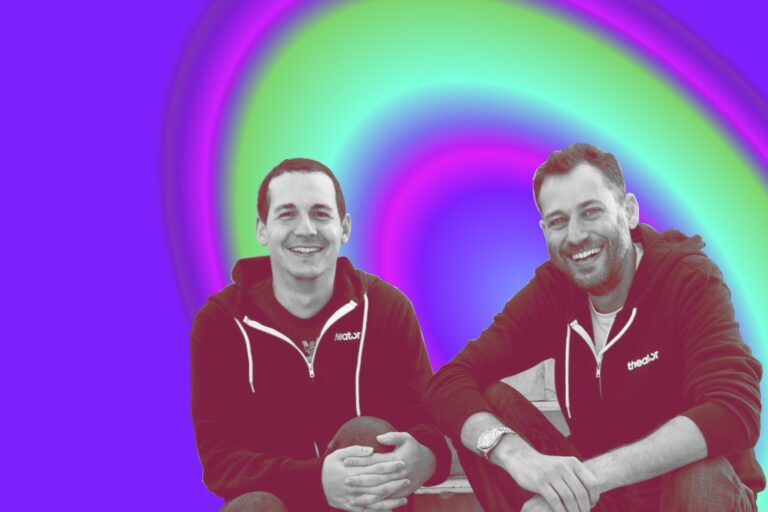Tenet Healthcare System Is Proving Its Ability Amid COVID-19
Tenet Healthcare Corp., which recently moved from downtown Dallas to a new headquarters in Farmers Branch, is a Fortune 500 company with more than 113,000 employees, 65 acute-care and specialty hospitals, and 490 outpatient locations stretching from California to Florida. Tenet distinguishes itself a healthcare provider by partnering and using innovations to provide better care to patients.
At the helm for about two years, CEO Ron Rittenmeyer has led a transformation of the organization, focusing on performance, compassionate and high-quality care, leadership, community outreach, and culture. Tenet is built on four main core principles which create a cohesive culture by promoting diversity and respect to different cultural backgrounds.
Tenet: From a Small Operation to a Healthcare Giant
Tenet Healthcare Corporation is a Dallas-based company that provides healthcare services. It was founded in 1969 by attorneys Richard Elmer, John Bedrosian and Leonard Cohen to function as a National Medical Enterprise. Formerly known as National Medical Enterprise (NME), Tenet has acquired several lucrative healthcare businesses and brands. Tenet operates health-related care facilities, revenue cycle management, acute care hospitals, diagnostic imaging centers, and ambulatory surgery centers.
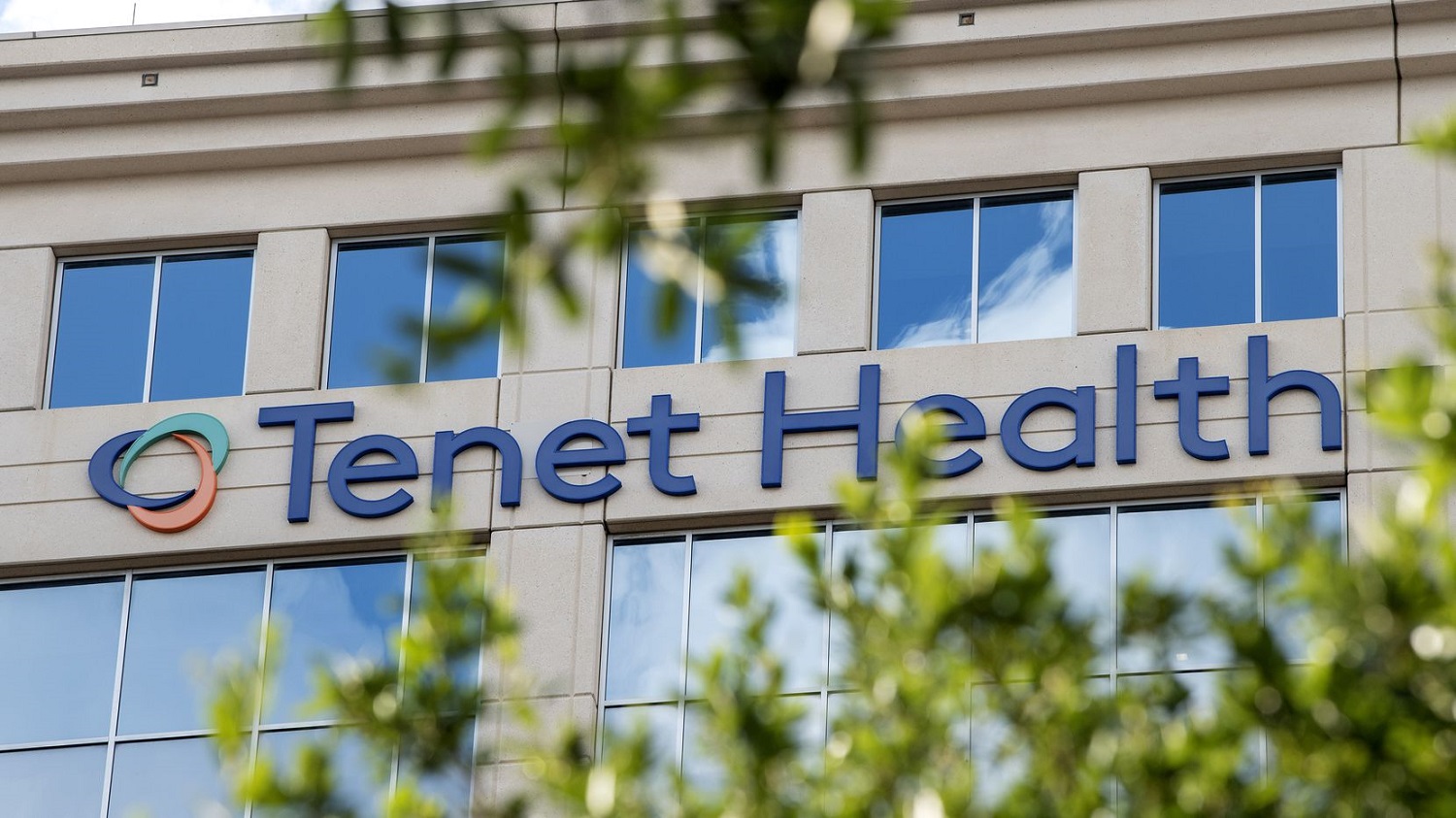
Through various partnerships and acquisition, Tenet is now one of the largest chain hospital operators. Over the years, it has grown tremendously in size, scope and capability, building a home in new markets over time, and curating those homes to provide a compassionate environment for those entrusting us with their care.
Tenet’s most successful acquisition was Vanguard Health System which increased the stock price and revenue for the company in 2013. Through this business venture, they acquired 39 outpatient centers and 28 hospitals which provided more services to the people in areas such as Texas, California, and Massachusetts. Other investments which benefited Tenet include launching Conifer Health Solutions in 2008, which serves about 300 hospitals across the states. In 2014, it partnered with Yale New Haven Health System and Texas Tech University Health Sciences Center. This same year, the company launched Medpost which is a National network of urgent centers. It then went on to acquire Texas Regional Medical Center which provided access to a 70 bed community hospital. Tenet then opened a 56-acre Resolute Health Hospital that gave access to 128 beds.
Today, Tenet is leading health system and services platform that continues to evolve in lockstep with community need. Tenet’s operations include three businesses – hospitals and physicians, USPI and Conifer Health Solutions.
Its impact spreads far and deep with 65 hospitals and approximately 510 outpatient centers and additional sites of care. Tenet is differentiated by the top notch medical specialists and service lines that are tailored within each community it serves. The work Conifer is doing will help provide the foundation for better health for clients across the country, through the delivery of healthcare-focused revenue cycle management and value-based care solutions.
The Wellness Programs That Changed Tenet’s Culture Forever
“When patients come to one of Tenet Healthcare’s 65 acute-care hospitals, 20 short-stay surgical hospitals or 510 outpatient centers, Tenet wants them to feel surrounded by healthy doctors, nurses and other staff in a culture that values and delivers health,” said Thora Khademazad, Tenet’s director of culture programs. “But developing that culture has been an evolving ten-year effort that moved from wellness as a way to lower health care cost to wellness because it is the right thing to do for employees.”
Tenet now has 113,000 employees—79% women with an average age of 44 and 21% men with an average age of 54. Its facilities are coast to coast in the United States and in the United Kingdom. Tenet’s first health risk assessment in 2005 revealed employees had the same health problems as most employee groups. People didn’t eat enough fruits and vegetables or exercise enough. Stress levels were high. Medical claims cost was rising about 5% annually, exacerbated by employees being overweight and having high blood pressure or diabetes—controllable risk factors that could be improved with a healthy lifestyle.
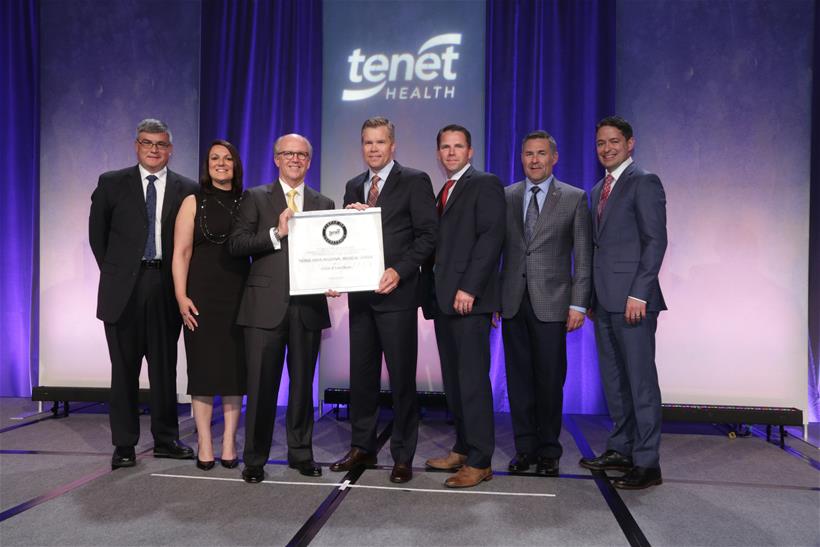
“That’s who we were,” Khademazad said, “and we wanted a wellness strategy that would help bring health care costs down and improve the quality of life for our employees.” In 2006, Tenet launched its first off-the-shelf program using an outside vendor. The activity-based program used a wellness credit system to encourage participation, and “it worked well because our people liked it,” she said. They enjoyed earning credits that added up to an incentive.
However, “we wanted to customize the program and content to fit our population. After three years, we decided to do it ourselves, and we brought the wellness program in-house.” In 2009, Tenet launched a popular, interactive Healthy-at-Tenet website. Previously, wellness was separate from Tenet’s other benefit and retirement plans. Now, wellness and benefits were combined, with one website for easy access and to reinforce the idea that a person’s health and wellness affect his or her benefit costs.
Employees liked the user-friendly wellness website so much that in 2011 the website incorporated all wellness and health benefits together with the retirement and financial benefits. The move in-house decreased administrative costs considerably (with no more per-member-per-month pricing) and allowed for a flexible program design with custom content. Incentives increased over the next few years to a maximum of $600 annually in the form of a contribution to a health savings account.
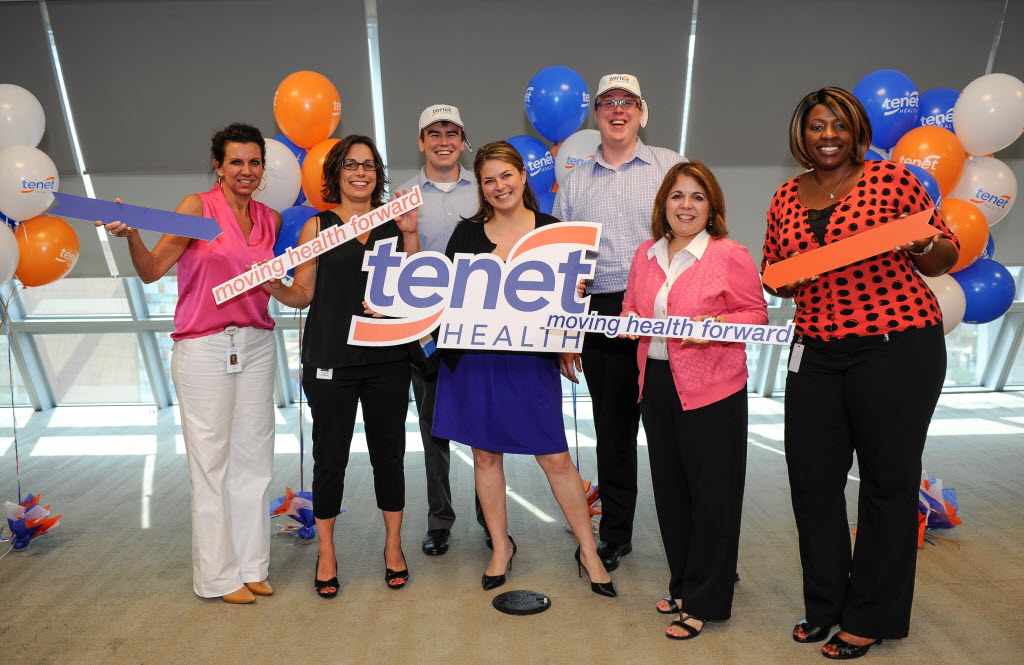
The new program offered improved communications and created a robust network of more than 400 wellness champions with a coordinator at each facility. Also, facilities with strong participation in the program could earn awards and money that could be used to encourage a culture of wellness—at their facilities. Award money was used to create on-site fitness facilities, for walking trails and for massage chairs for the staff lounge. “The program really took off over the next three years,” Khademazad said.
“It was difficult to measure the program’s effectiveness. So, in 2013 we changed the program to an outcomes-based design.” Incentives were lowered to a maximum of $400 for achieving healthy measures in four categories: blood pressure, cholesterol, body mass index (BMI) and nicotine use. The tests included a finger prick and nicotine cheek swab conducted at on-site events, local labs, or doctors’ offices. “I strongly suggest giving people options, to make getting their screenings as convenient as possible,” Khademazad said. “It was a very different program than what we were used to,” she said. “We provided online and telephone coaching as a reasonable alternative to earn incentives.” The program rewards people who are healthy or are making an effort to be healthy.
But “who we were trying to catch were the people we don’t know anything about—the ones who don’t go to a doctor or get annual screenings.” At the same time, Tenet expanded its view of wellness. Previously, there was a big emphasis on nutrition and fitness. “But definitions of wellness are extremely broad,” Khademazad said. “There is more to it than just the physical aspects. So we changed our program to reflect six dimensions of wellness. Now, seminars and challenges cover topics on emotional, social, environmental, financial, and learning…
The message was that “we want to make sure we’re supporting you in all aspects of your life, not just at work, but also at home with your families.” The new, expanded program launched in January 2013 with a ‘Random-Acts-of-Kindness’ challenge, and people loved it. Participants earned entries into drawings for valuable prizes like iPads, Apple Watches, and gift cards by participating in the wellness challenges and seminars.
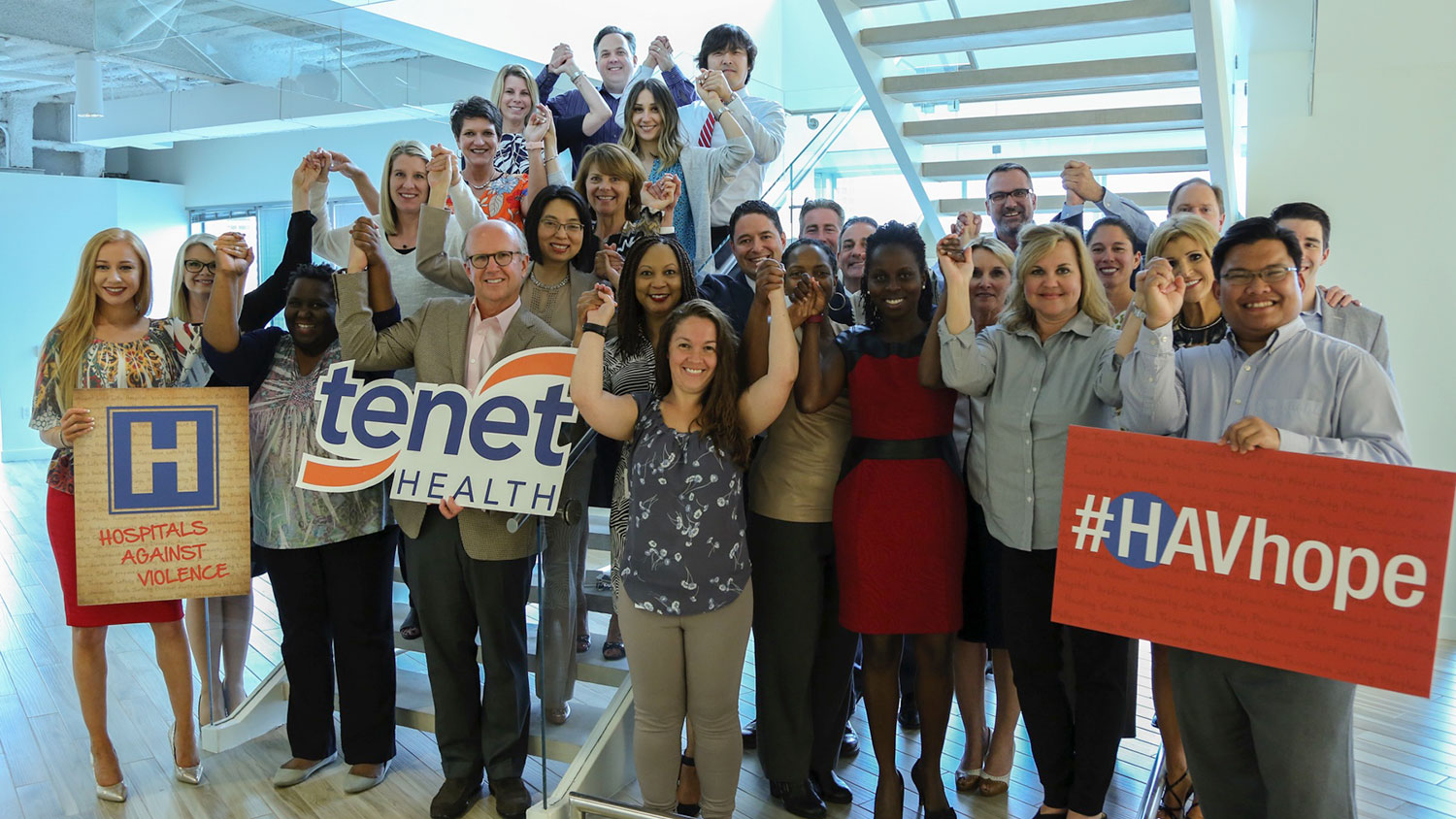
Khademazad credits the wellness champion network with getting employees engaged. “They know their local people,” she said. “They come up with some of the best challenges we have had. We have over 400 champions now, and we have a call with them each month.” A local challenge might be something like a group of nurses challenging each other not to eat any jellybeans for two weeks. “The nurses make up their own challenges, and they love it.”
The goal was to change the way employees think and feel about work, which has required understanding the beliefs, values and assumptions that influence behaviors and looking at attitudes and lifestyles. Creating a culture of health at Tenet has meant recognizing people don’t like corporate programs and would rather do things their own way. Khademazad said her staff recognized that employees tend to work in packs—especially nurses. Reaching them meant figuring out who the influencers are and having team competitions. Among this competitive group, “nobody wants to be at the bottom” of the leader board.
Khademazad suggested an organization considering a wellness program ask itself if the program is trying to achieve a return on investment (ROI), where saving money is the most important objective, or a value of investment (VOI) that tries to create a culture where people want to work. “If you want ROI, it is important, but very hard, to keep the variables in your program consistent. You need consistency with your definition of wellness, with program design, benefit plan design, incentive structure, vendors, and employees. We had just about all of those elements change during the last five years.”
Although an ROI had been hard to achieve, Tenet has seen good trends with its program participants. Employees who have participated consistently year over year have had fewer emergency room visits and shorter hospital stays. “Participants in our program are improving their health. We have employees who are climbing Mount Kilimanjaro, doing runs and walks on their own, changing their eating habits and establishing work-life balance. Our culture is changing. Magic happens when you set up a platform that makes it fun for people to improve their health.”
Coronavirus Cases “Couldn’t Overwhelm” Tenet
Chief operating officer Saum Sutaria said Tenet is seeing hot spots in COVID-19 cases in Detroit and South Florida, but added that its 65 hospitals “are not overwhelmed.” This is the latest sign that the healthcare giant may be effectively coping with the pandemic.
Tenet has seen a “material reduction in patient volumes” since it canceled elective surgeries to free up inpatient capacity like most health systems across the country. Tenet’s facilities are located in several US states including Texas, California, and Florida.
“Our first quarter represents results that were trending above our expectations through early March and then, in a virtual snap of the finger, hit a wall created by the COVID-19 pandemic and the quick shutdown of elective surgeries and normal patient traffic,” Tenet executive chairman and CEO Ronald Rittenmeyer said in announcing the company’s first quarter earnings.
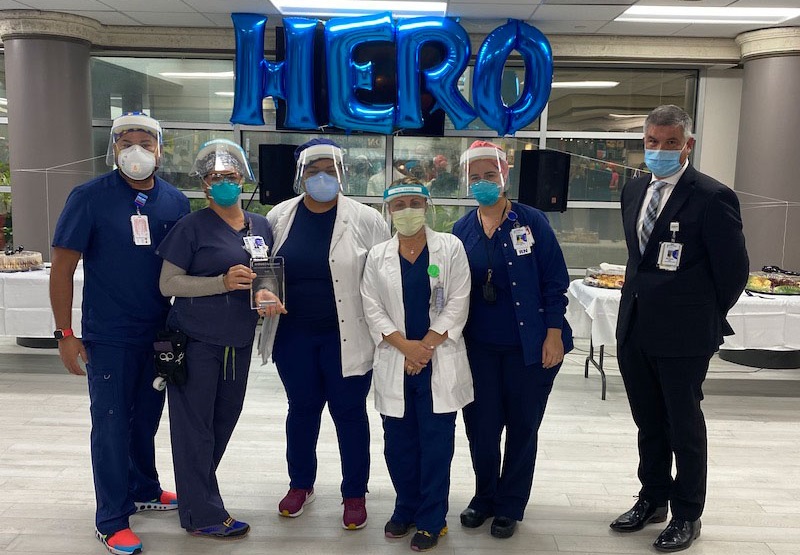
But Tenet said it is effectively managing COVID-19 patients and adapting well to the “rapidly evolving environment.” As of May 1, Tenet had 771 “active COVID-19 patients in-house across its portfolio of 65 hospitals and 308 patients under investigation (PUI) cases, many of which are inpatients with test results pending.”
As states begin to ease “shelter in place” orders, Tenet said it will resume elective procedures and enter a recovery mode. Hospitals elsewhere in the US are reporting similar moves, which should improve operations and help financially stabilize at least some of the larger healthcare provider systems.
“We have now shifted our focus to a comprehensive recovery effort across our entire system in compliance with state and local orders,” Rittenmeyer said. “We have begun to resume vital elective procedures and methodically re-open, with a detailed plan by physician, our USPI facilities and the hospital departments that were closed as a result of the pandemic.”
Tenet’s Net Income More Than Triples in Q2
Although Tenet Healthcare suffered rocky financial terrain from the COVID-19 pandemic, the Dallas-based health system giant began to steady itself at the end of the second quarter. Its revenues declined year over year in the second quarter of 2020, but federal grants made available to help offset lost revenues and expenses tied to the COVID-19 pandemic helped push the Tenet’s net income higher.
After factoring in expenses and one-time costs, Tenet reported net income available to shareholders of $88 million in the second quarter of this year, compared to net income of $26 million in the same period last year. The company’s net income in the second quarter of this year included $523 million in federal grants made available under the Coronavirus Aid, Relief and Economic Security Act.
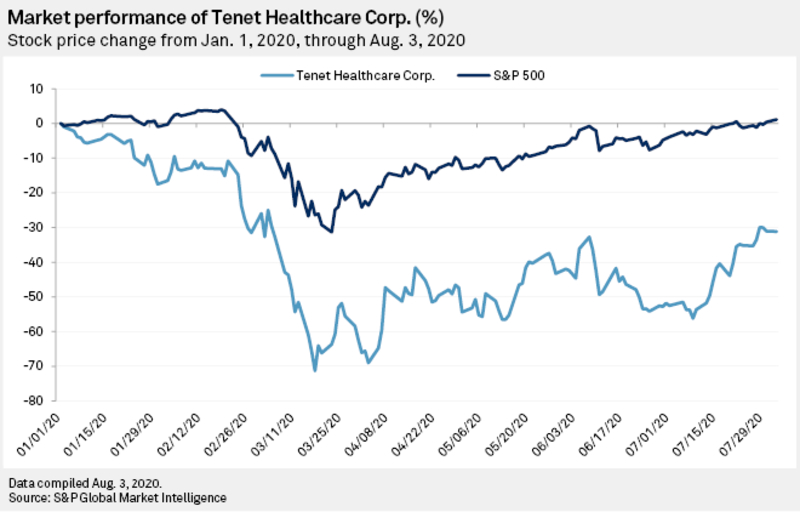
Tenet Executive Chair and CEO Ronald A. Rittenmeyer said the second quarter “was a challenge by any measure.” He said CARES Act funds helped minimize financial damage from the pandemic as caregivers at its facilities continue to treat COVID-19 patients.
“Today, we and our brave front-line caregivers continue to face an even larger surge of COVID-19 cases in several markets, but we have a much better sense of how to deal with these in a more effective manner,” Mr. Rittenmeyer said in an earnings release. “While there is a greater negative financial impact associated with COVID-19 cases, we believe the CARES Act provided reasonable, but not complete relief from the impact of the shutdown and will help with the remaining cases with which we are now engaged.”
In particular, Tenet CEO said the organization saw a turnaround happen in June 2020. “Our results in the quarter, particularly in June, underscore the ability of the business to adapt, flex and perform and provide clarity that we would deliver at or above expectations, even in times of a crisis.”
In June, the health system reported during a second quarter call with analysts that its patient volumes, cost management and earnings improved in June as it began to ramp back up facilities as various states began to ease shelter-in-place restrictions. Among moves made by the health system increased its credit line in April and placed two secure note offerings during the quarter to improve liquidity. The health system also “flexed down” certain operating expenses including salaries, wages, benefits, and supplies.
Not counting government stimulus funds provided to the health system via the CARES Act, the health system reported earnings before interest, depreciation, taxes, and appreciation of $218 million in June, Rittenmyer said, only ‘slightly lower’ than its performance in the same month a year earlier.
“While we believe given the current COVID surges, which we are managing well in several markets … we do strongly believe that June is representative of how we will recover,” he said. “The changes we’ve made during the quarter are permanent, they are sustainable, and they will continue going forward. As I said, June was the turning point for us.”
The healthcare giant posted $88 million in profits for the second quarter as federal COVID-19 relief funding helped offset patient volume declines over the past few months. The earnings released by the hospital chain is the latest to show how $175 billion in federal relief are helping hospital chains stay afloat.
“Without a doubt, the financial support of the CARES Act provided an important bridge to minimize the financial crisis the pandemic created, allowing uninterrupted care for our patients and communities,” said Rittenmeyer said in a statement.

